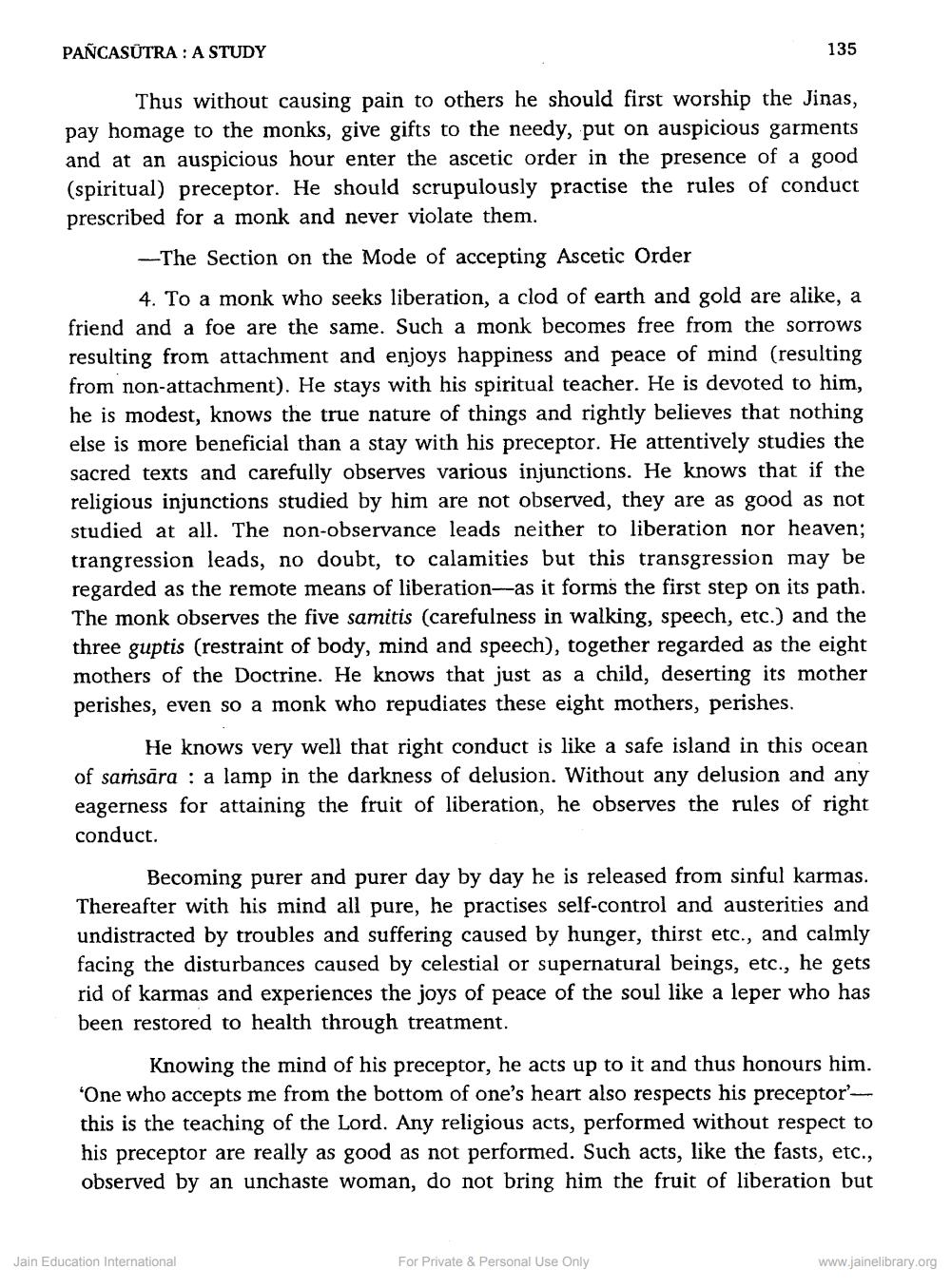________________ PANCASUTRA: A STUDY 135 Thus without causing pain to others he should first worship the Jinas, pay homage to the monks, give gifts to the needy, put on auspicious garments and at an auspicious hour enter the ascetic order in the presence of a good (spiritual) preceptor. He should scrupulously practise the rules of conduct prescribed for a monk and never violate them. -The Section on the Mode of accepting Ascetic Order 4. To a monk who seeks liberation, a clod of earth and gold are alike, a friend and a foe are the same. Such a monk becomes free from the sorrows resulting from attachment and enjoys happiness and peace of mind (resulting from non-attachment). He stays with his spiritual teacher. He is devoted to him, he is modest, knows the true nature of things and rightly believes that nothing else is more beneficial than a stay with his preceptor. He attentively studies the sacred texts and carefully observes various injunctions. He knows that if the religious injunctions studied by him are not observed, they are as good as not studied at all. The non-observance leads neither to liberation nor heaven; trangression leads, no doubt, to calamities but this transgression may be regarded as the remote means of liberation-as it forms the first step on its path. The monk observes the five samitis (carefulness in walking, speech, etc.) and the three guptis (restraint of body, mind and speech), together regarded as the eight mothers of the Doctrine. He knows that just as a child, deserting its mother perishes, even so a monk who repudiates these eight mothers, perishes. He knows very well that right conduct is like a safe island in this ocean of samsara : a lamp in the darkness of delusion. Without any delusion and any eagerness for attaining the fruit of liberation, he observes the rules of right conduct. Becoming purer and purer day by day he is released from sinful karmas. Thereafter with his mind all pure, he practises self-control and austerities and undistracted by troubles and suffering caused by hunger, thirst etc., and calmly facing the disturbances caused by celestial or supernatural beings, etc., he gets rid of karmas and experiences the joys of peace of the soul like a leper who has been restored to health through treatment. Knowing the mind of his preceptor, he acts up to it and thus honours him. 'One who accepts me from the bottom of one's heart also respects his preceptorthis is the teaching of the Lord. Any religious acts, performed without respect to his preceptor are really as good as not performed. Such acts, like the fasts, etc., observed by an unchaste woman, do not bring him the fruit of liberation but Jain Education International For Private & Personal Use Only www.jainelibrary.org




